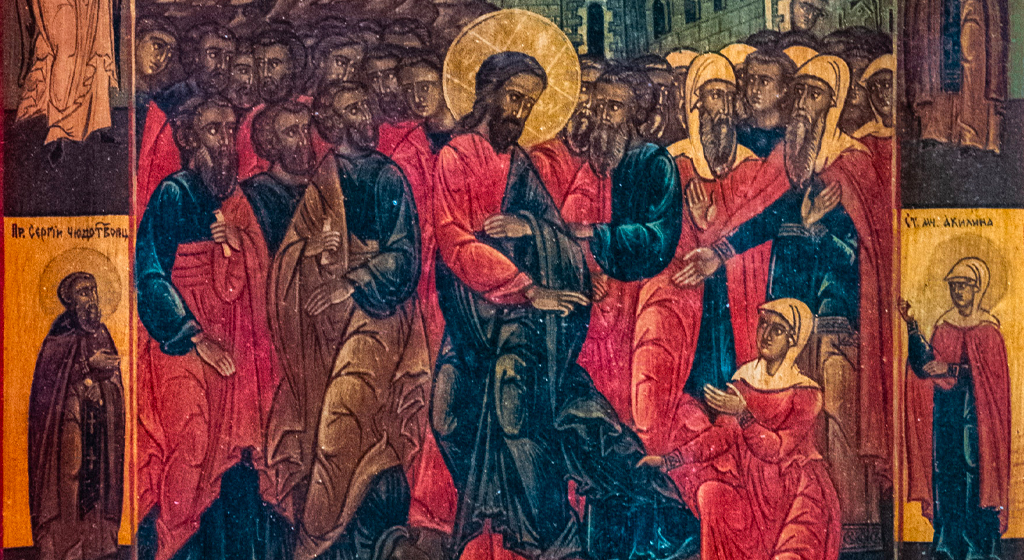Memory of the Poor
Reading of the Word of God
Alleluia, alleluia, alleluia
This is the Gospel of the poor,
liberation for the imprisoned,
sight for the blind,
freedom for the oppressed.
Alleluia, alleluia, alleluia
Sirach 1,1-10
All wisdom comes from the Lord, she is with him for ever. The sands of the sea, the drops of rain, the days of eternity -- who can count them? The height of the sky, the breadth of the earth, the depth of the abyss -- who can explore them? Wisdom was created before everything, prudent understanding subsists from remotest ages. For whom has the root of wisdom ever been uncovered? Her resourceful ways, who knows them? One only is wise, terrible indeed, seated on his throne, the Lord. It was he who created, inspected and weighed her up, and then poured her out on all his works- as much to each living creature as he chose -- bestowing her on those who love him.
Alleluia, alleluia, alleluia
The Son of Man came to serve,
whoever wants to be great
should become servant of all.
Alleluia, alleluia, alleluia
The book of Sirach, written by Ben Sira, perhaps the last written book of the First Testament. The author is a wise scribe who reads attentively Scripture with sapiential intelligence to give it to the people and enlighten their daily life. He asks believers to apply themselves to the meditation of the Word of God in order to understand its meaning in the time they live. His deep conviction is that the origin of wisdom abides in God. He writes: ""The source of wisdom is the word of God in heaven; her ways are the eternal commandments." In this he agrees completely with the psalmist who sings the Word of God, light "for our steps" (Ps 119:105). The author wants to help the believer discern through the Holy Scriptures the wisdom that dwells with God in order to be able to receive her and live accordingly. Indeed, wisdom essentially belongs to the Lord: "There is but one who is wise, greatly to be feared, seated upon his throne" (v. 8). But the Lord is not jealous of her. On the contrary, he gives her widely to those who love him: "It is he who created her; he saw her and took her measure; he poured her out upon all his works, upon all the living according to his gift; he lavished her upon those who love him" (9-10). According to the author, only those who trust in God can live wisely. Human beings are finite and limited: they can count neither the sands of the sea, nor the drops of rain, nor the days and centuries. Believers have the responsibility both to accept the gift of wisdom and to exercise her to help everyone understand the meaning of history and the world with God's gaze and thought. The wisdom that believers accept urges them to seek further and to inquire. In this time of globalisation and risky simplifications, the warning of the Second Vatican Council, which in the Gaudium et Spes (GS 15), wrote: "Our age, even more than past centuries, needs this wisdom to humanise all its new discoveries. In fact, the future of the world is at stake unless wiser men and women are raised up."
